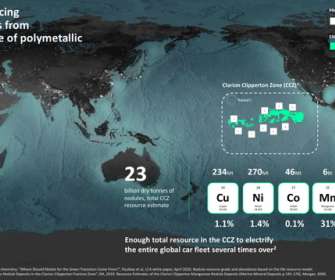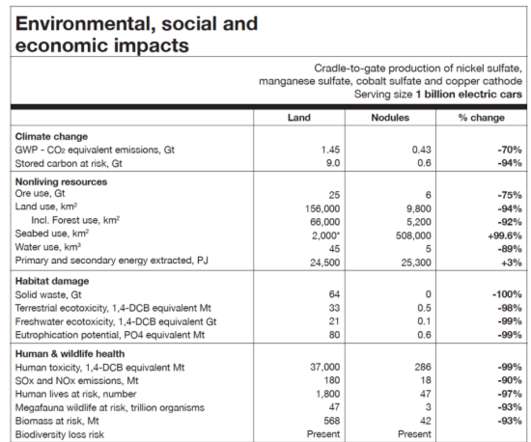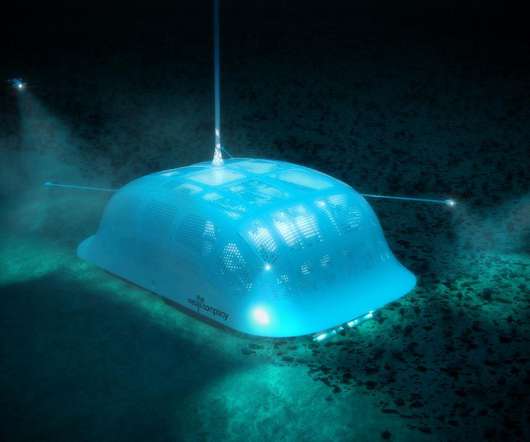Deep-sea battery metal developer DeepGreen going public with SPAC to become $2.9B (equity value) The Metals Company
Green Car Congress
MARCH 5, 2021
The estimated resource on the seafloor in the exploration contract areas held by the company’s subsidiaries is sufficient for 280 million EVs—a quarter of the global passenger car fleet. Seafloor polymetallic nodule. The nodules are unattached to the seafloor; i.e., there is no need for drilling and blasting. DeepGreen Metals Inc.











Let's personalize your content